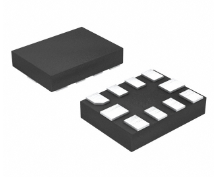- Online chat

ADS1015IRUGR
The ADS1015IRUGR is a low-power, 16-bit analog-to-digital converter (ADC) from Texas Instruments, designed for precision measurement in battery-operated and embedded systems. This device features four differential input channels or single-ended operation, enabling flexible connectivity to sensors and transducers. It supports a ±4.096V input range with a resolution of 16 bits, delivering high accuracy for low-level signals. The ADC operates via an I2C interface and consumes minimal power (15 µA in active mode, 0.1 µA in shutdown), making it ideal for energy-constrained applications. It is housed in a compact 8-pin VSSOP package, facilitating integration into space-limited designs.
Key Features
The ADS1015IRUGR offers programmable data rates from 8 SPS (samples per second) to 1280 SPS, balancing speed and power efficiency. Its 16-bit resolution ensures precision down to 0.125 mV (for ±4.096V range), while a 12-bit mode reduces power consumption further. The device includes a built-in programmable gain amplifier (PGA) with up to ×8 gain, extending measurement sensitivity to ±0.256V. It operates over a wide supply voltage range (2.0V to 3.6V), ensuring compatibility with single-cell Li-ion or alkaline batteries. Integrated overvoltage protection and EMI/ESD resilience enhance reliability in noisy environments.
Applications
Primarily used in industrial IoT and sensor networks, the ADS1015IRUGR is critical for monitoring strain gauges, temperature sensors, and battery voltages in wearable devices and environmental systems. It is widely employed in medical instrumentation, portable test equipment, and smart home devices requiring precise analog measurements. Its low power consumption and small footprint make it ideal for battery-powered sensors in agriculture, structural health monitoring, and consumer electronics.
Summary
The ADS1015IRUGR combines high precision, ultra-low power consumption, and compact form factor, making it a premier choice for embedded systems demanding accurate analog data acquisition. Its flexible input configuration, programmable gain, and I2C interface cater to a broad range of applications in industrial, medical, and consumer markets. This ADC is essential for engineers designing energy-efficient sensor nodes and measurement systems requiring reliable, high-resolution data conversion.




